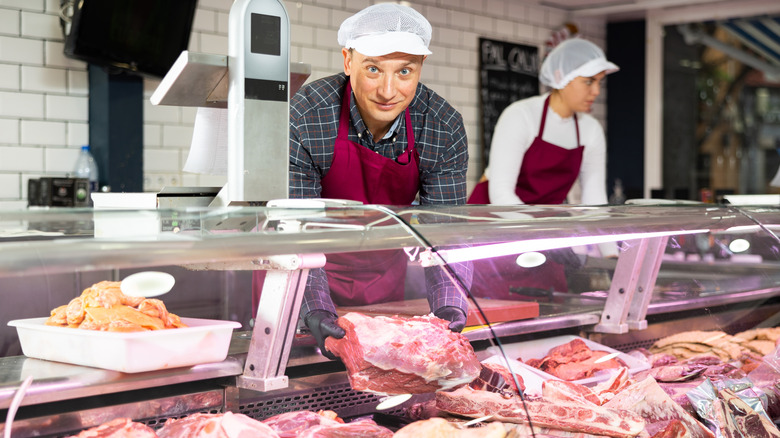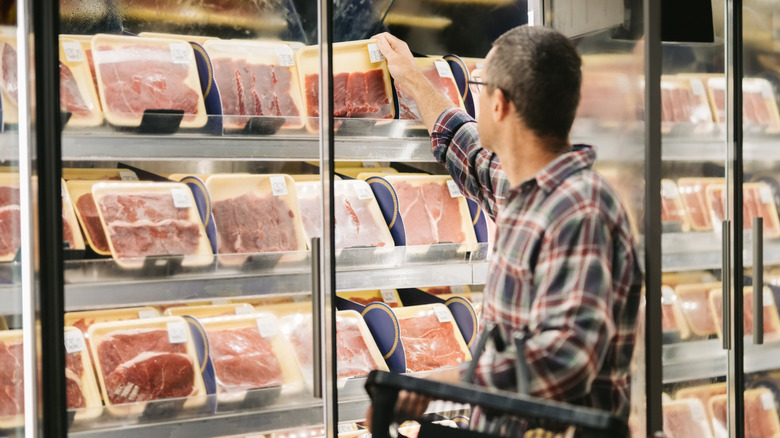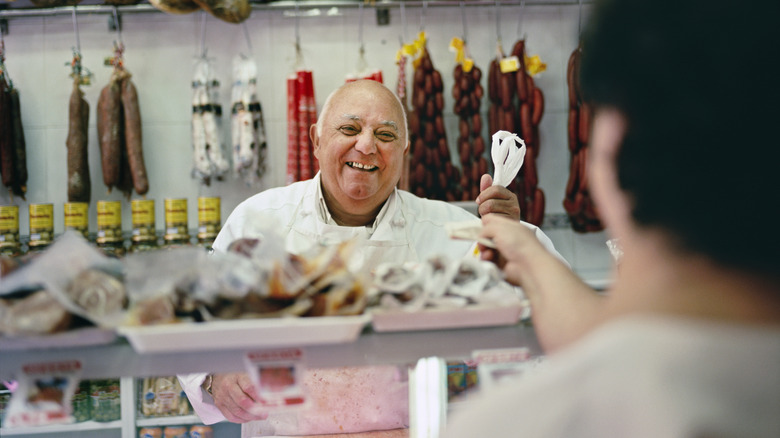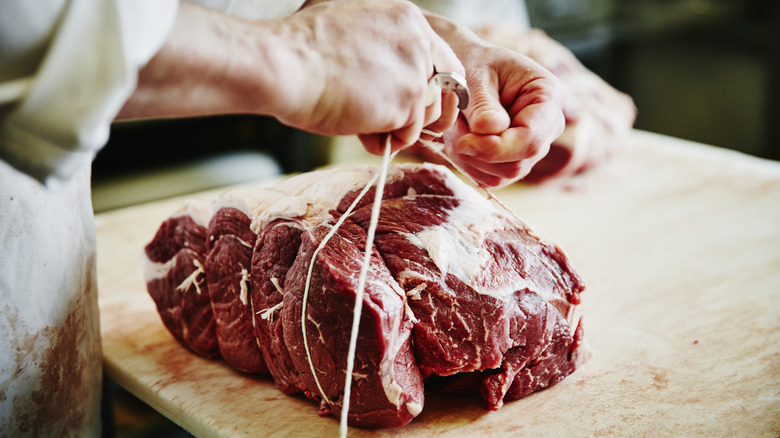How Does Grocery Store Meat Compare To The Butcher Shop?
Wandering around the meat department at your supermarket, looking for a specific cut of meat, can be frustrating. This is especially true if you notice the meat counter but can't find the person who is supposed to be behind it. It's enough to send you on a search for a quality neighborhood butcher. Just know that a butcher isn't always the best solution. As one Reddit user said about choosing between a supermarket and a butcher, "To start with it definitely depends on the butcher." It also depends on the supermarket.
Before you decide, it's helpful to know what cut of meat you plan to buy, how you plan to use the meat, whether you need or want something specially prepared, and how your local supermarket buys, distributes, and sells meat. It may also be helpful to get to know your local butcher and for the butcher to get to know you and your family's likes and dislikes.
Convenience and price drive customers to supermarkets
According to a report from the meat industry platform Promenade, per capita meat consumption in the United States was expected to increase to 222 pounds in 2021 (up from 200 in 2012), but the number of butcher shops in that same period declined by more than 300 shops. It's no surprise then that consumers find it easier to buy meat at supermarkets than at a local butcher. But there are other reasons why supermarkets may be a better choice for some shoppers.
Next to convenience, the other key reason consumers choose to buy meat at their local grocers is price. Although it's difficult to compare supermarket and butcher prices head to head, similar cuts of meat will be more expensive at a butcher than at a supermarket. Butchers, however, will argue that you are getting higher quality meat and thereby better value at their shops. They also warn against buying meat being sold at a deep discount since it may be nearing its expiration date.
Butchers advise those who are budget-conscious to let them know how much they want to spend. That way, they can guide you toward more affordable cuts. You can also learn which cuts of steak are overrated and which ones are the best replacements. Also, you can get to know which cuts to buy and which to avoid.
Some grocers seek to provide a butcher shop's personal touch
One of the nicest things about shopping at a local butcher shop, other than their getting to know you and your family's likes and dislikes, is they can advise you on preparation methods, seasoning, and marinades. You can also have the meat trimmed to your specifications and request the meat to be pre-seasoned or pre-marinated. Butchers are also concerned about the animals from which they source the meat, making sure they know where and how the animal was raised, slaughtered, and processed. Supermarket staff generally aren't as informed.
However, some grocers do understand the need for their in-store meat purveyors to get more personal. One of Whole Foods Market's New York stores has a meat-cutting room with a window through which customers can see the full-size cuts of meat as well as the store's butchers in action. It's also an opportunity for shoppers to ask questions. Whole Foods' enhanced butcher service also includes custom meat cutting, poultry deboning, and meat seasoning and marinating.
Certain cuts are better at a butcher
Butchers argue that you shouldn't purchase certain meats or cuts of meat at supermarkets. Ground beef and chicken are often pre-ground at the meat processing facility, allowing for more points of contamination with harmful bacteria. Some also suggest avoiding in-bone meat. If not properly stored or kept too long, the bone can make the meat more acidic and cause foul odors and textures.
You may also want to stick with your butcher when buying organ meats or dishes prepared with organ meats like pate and terrine. At a supermarket, organ meats are likely to be kept frozen, since there isn't a high demand for them, but are more likely to be fresh at the butcher shop. They also take a certain amount of expertise to prepare properly.
Your butcher is also the place to buy dry-aged beef. Since butchers tend to have more space for the animal carcass, they can dry-age beef while still on the bone and uncut — the more flavorful way to prepare it. Grocery stores use a "wet aging" method in which the meat is pre-cut and aged in packages.



